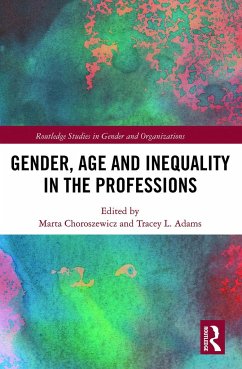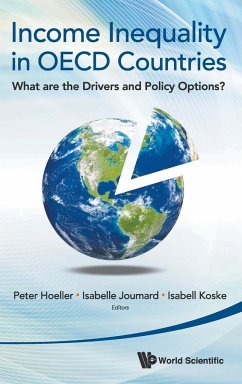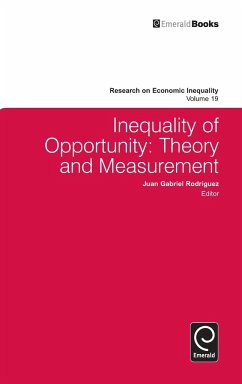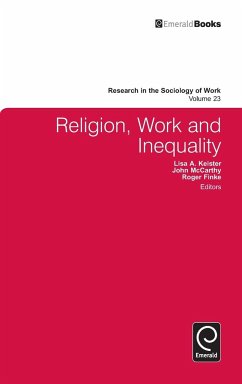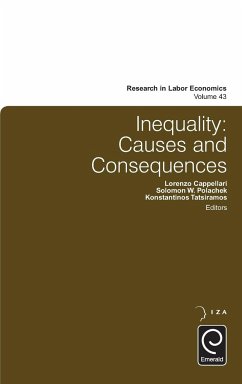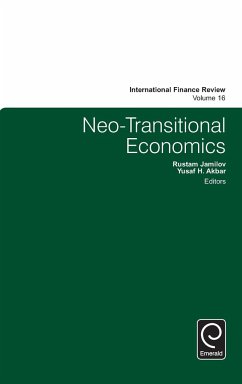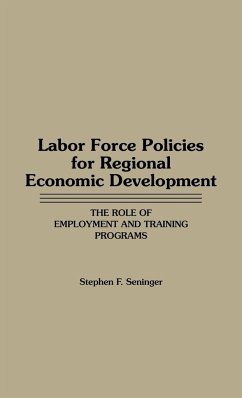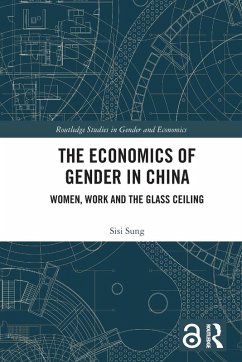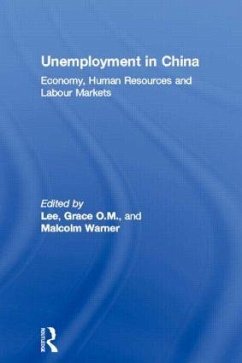Regional Inequality in Transitional China
Versandkostenfrei!
Versandfertig in 1-2 Wochen
Weitere Ausgaben:

PAYBACK Punkte
84 °P sammeln!




This book investigates uneven regional development in China - with particular focus on the case of Guangdong and Zheijiang provinces - which has been at the forefront of debate since Chinese economic reform.
Felix Haifeng Liao is an Associate Professor of Geography at the University of Idaho in the United States. His research interests are in the areas of economic and urban geographies, regional development, urban environmental planning, and geographic information systems (GIS) applications. He has used mixed-methods, GIS, spatial analysis and modeling, and spatial optimization to examine issues related to China's urban and regional development, transnational corporations, land and resource management, and other environmental and equity-related problems in China and the United States. He has published widely in geography journals and other interdisciplinary journals in the field of environmental science, urban studies, and sustainability science. His research has been funded by the NSF, the Natural Science Foundation of China (NSFC), United States Department of Agriculture (USDA), and Idaho NSF EPSCoR (Experimental Program to Stimulate Competitive Research). Yehua Dennis Wei is a Professor in the Department of Geography at the University of Utah in the United States. He is an economic/urban geographer and development specialist, with research interests in globalization, urbanization, and regional development in China. Using recent developments in geographical information systems (GIS), Wei has investigated the effects of globalization and economic transition on cities, regions, and places with respect to regional inequality, urban transition, foreign investment, innovation, and sustainable development. Wei is the author of Regional Development in China: States, Globalization, and Inequality and more than 200 journal articles and book chapters. His research has been funded by the NSF, Ford Foundation, Lincoln Institute of Land Policy, National Geographic Society, and Natural Science Foundation of China (NSFC). He has received awards for research excellence from the NSFC (Outstanding Young Scientist Award), Association of American Geographers' (AAG) Regional Development and Planning Specialty Group, University of Wisconsin-Milwaukee, and the Chinese Academy of Sciences. His professional services include advisor/panelist for the NSF, consultant to the World Bank, overseas evaluation experts of the Chinese Academy of Sciences, Chair for AAG's China, Asian, and Regional Development and Planning specialty groups, Vice President of Chinese Professionals in GIS, etc. Li Huang is a doctoral graduate in the Department of Geography, University of Idaho in the United States. His primary research interests are in economic geography, regional development and inequality, land and resource management, and GIScience. He obtained his bachelor of science degree in GIS and a master's degree of science in urban and regional planning from Peking University in China.
Produktdetails
- Verlag: Routledge
- Seitenzahl: 214
- Erscheinungstermin: 18. September 2020
- Englisch
- Abmessung: 240mm x 161mm x 16mm
- Gewicht: 490g
- ISBN-13: 9781138060678
- ISBN-10: 1138060674
- Artikelnr.: 59987596
Herstellerkennzeichnung
Libri GmbH
Europaallee 1
36244 Bad Hersfeld
gpsr@libri.de
Für dieses Produkt wurde noch keine Bewertung abgegeben. Wir würden uns sehr freuen, wenn du die erste Bewertung schreibst!
Eine Bewertung schreiben
Eine Bewertung schreiben
Andere Kunden interessierten sich für





